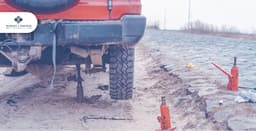
January 14, 2025
What Happens After a Deposition in a Car Accident Case
After your deposition in a car accident case, you might be asking what’s next. The deposition marks a key point in your case, but it’s just one part of a bigger picture. Once the deposition is complete, the next steps unfold based on what was shared and how the other side responds.
Your attorney will review everything and may enter settlement talks or prepare for trial if needed. Every decision that follows plays a role in how your case is resolved, but the outcome is still uncertain. The road ahead can take different turns, and understanding these stages can give you a clearer sense of what to expect.
1) Key Steps After a Deposition in a Car Accident Case
After your deposition in a car accident case, there are several important steps in the legal process. Each one plays an important role in determining the direction of your case—whether it leads to a settlement or goes to trial. Here’s a breakdown of these key steps:
Transcript Review
Once your deposition is complete, a court reporter transcribes everything that was said. Both your attorney and the opposing party’s lawyer will carefully review this transcript to ensure everything is accurate. Accuracy is critical because any errors in the transcript could impact how the case progresses. A correct transcript helps ensure that the testimony is reliable, whether used in settlement talks or during trial.
Case Evaluation
After reviewing the deposition, both sides—your lawyer and the other party’s lawyer—will evaluate the case to identify its strengths and weaknesses. They will look at how the deposition testimony fits with other evidence in the case. This evaluation helps both parties decide on the best course of action. It can influence whether the case moves toward a settlement or if both sides prepare for a trial.
Settlement Discussions
Many car accident cases settle after the deposition phase. This is an opportunity for both sides to discuss a possible settlement without having to go to trial. Settlement offers are often made based on the information gathered during the deposition. Settlement can save both time and money. It also provides more control over the outcome, since you and the other party can agree on terms without leaving the decision to a judge or jury.
Motions and Legal Filings

Your attorney or opposing lawyer may file motions to exclude irrelevant or prejudicial deposition parts from the trial. This step can significantly impact the strength of each side’s case. Excluding certain testimony can weaken the opposing party's argument and strengthen your case.
Trial Preparation
If your case proceeds to trial, both sides will begin detailed preparations. This involves reviewing deposition statements for consistency with evidence and rehearsing court testimony. Proper trial preparation is essential for presenting a consistent, strong case. The information from the deposition helps your lawyer build a strategy that maximizes your chances of success.
Further Discovery
If new information arises after the deposition, your lawyer may conduct additional depositions or gather more evidence. This could include re-interviewing witnesses, obtaining new documents, or finding expert testimony. New evidence can strengthen your case or provide essential details that could affect the outcome. It’s an opportunity to fill in any gaps discovered during the deposition.
Pretrial Hearings
Before the trial, there may be pretrial hearings where the judge considers motions, reviews the evidence, and sets the schedule for trial. Pretrial hearings address legal issues and set the framework for the trial, ensuring a smooth process. They define which arguments and evidence can be presented to the judge or jury.
Trial or Settlement Decision
If no settlement is reached, the case will proceed to trial. This is where the final determination of fault and damages will occur. A judge or jury will make a decision based on the evidence presented, including the deposition testimony. This is the final stage of the legal process, so understanding whether to settle or proceed to trial is key to managing expectations. If your case goes to trial, it means that both sides will have the opportunity to argue their positions in front of a judge or jury.
Need more clarity? Check out these related resources
How Long After an Accident do You Have to File a Claim
Why Personal Injury Claims Get Rejected and How to Avoid It
The Importance of Documenting Your Injuries and Treatment
2) Alternative Dispute Resolution (Optional)

After deposition in a car accident case, both sides sometimes look to resolve the case without going to court. This is where Alternative Dispute Resolution (ADR) options, like mediation and arbitration, come into play. These approaches can offer faster, less stressful, and often more affordable solutions, allowing both parties to find common ground outside of a courtroom setting.
1. Mediation
What it is: Mediation is a voluntary, confidential process where both parties meet with a neutral third-party mediator. The mediator isn’t a judge and won’t decide the case, but they facilitate discussions and help both sides understand each other’s positions.
How it works: During mediation, each side presents its viewpoint and discusses the case’s key issues. The mediator guides the conversation to help both parties reach a mutually agreeable solution.
Benefits of mediation: This approach allows both parties to work toward a fair settlement in a collaborative way, often leading to an outcome that feels balanced. Mediation can also save time and money by avoiding a lengthy trial, and it provides more control, as the final decision lies with the parties, not a judge or jury.
2. Arbitration
What it is: Arbitration is a more structured ADR process where both parties present their case to a neutral arbitrator or a panel of arbitrators. Unlike mediation, arbitration often has a legally binding result, meaning the arbitrator’s decision is typically final.
How it works: Each side will present evidence, similar to a mini-trial, and the arbitrator makes a decision based on the facts and applicable laws. Arbitration can either be binding or non-binding, though in many cases it is binding, which prevents further appeals.
Benefits of arbitration: Arbitration is generally quicker than going to trial, with fewer procedural delays, and can be less formal, creating a more relaxed environment. It can be a cost-effective option since it eliminates some of the expenses that come with a full trial. Arbitration can also offer privacy, as proceedings are usually confidential.
Choosing Between Mediation and Arbitration
Not every case suits ADR, but many car accident cases benefit from these options, leading to quicker resolutions. Mediation works best when both sides are open to negotiation, while arbitration is ideal for those who need a definitive decision without going to court. An experienced attorney can help you determine whether mediation or arbitration is appropriate in your case. They can advise you on which option could best serve your needs based on the deposition outcome and case details.
3) What to Do After a Deposition: Tips for Plaintiffs
After your deposition, it's important to stay focused and proactive as your case moves forward. Here are some key tips for plaintiffs to help ensure that you remain prepared and that your case stays on track:
Stay in Touch with Your Attorney
Make sure to reach out to your attorney if you have any questions or if something changes in your situation. Regular communication ensures you’re always up to date on the status of your case and prepared for the next steps. Whether there are settlement talks, additional motions, or preparation for trial, your attorney will guide you through each stage.
Avoid Public Discussion
Keep everything related to your case confidential. This includes not talking about the deposition or sharing details of your case publicly. Protecting the integrity of your case ensures that the focus stays on the facts, not external influences.
Review Deposition Statements
Take time to carefully review your deposition transcript and make note of any areas where you might need clarification. If something seems off or you remember additional details, make sure to inform your attorney so they can address it appropriately. You can check the U.S. Courts website for general resources about the deposition and trial process in personal injury cases.
Fight Back Against a Denied Claim—Contact Robert Johnson for Strong Legal Representation
If your claim has been denied, it can feel frustrating and discouraging, but you don’t have to go through this alone. With the right legal help, you can fight back and pursue the compensation you deserve. Robert J. Johnson is here to provide the guidance and support you need during this challenging time. Contact us today to discuss your case and get the legal help you need to move forward with confidence. We're here to help you through it every step of the way.





















